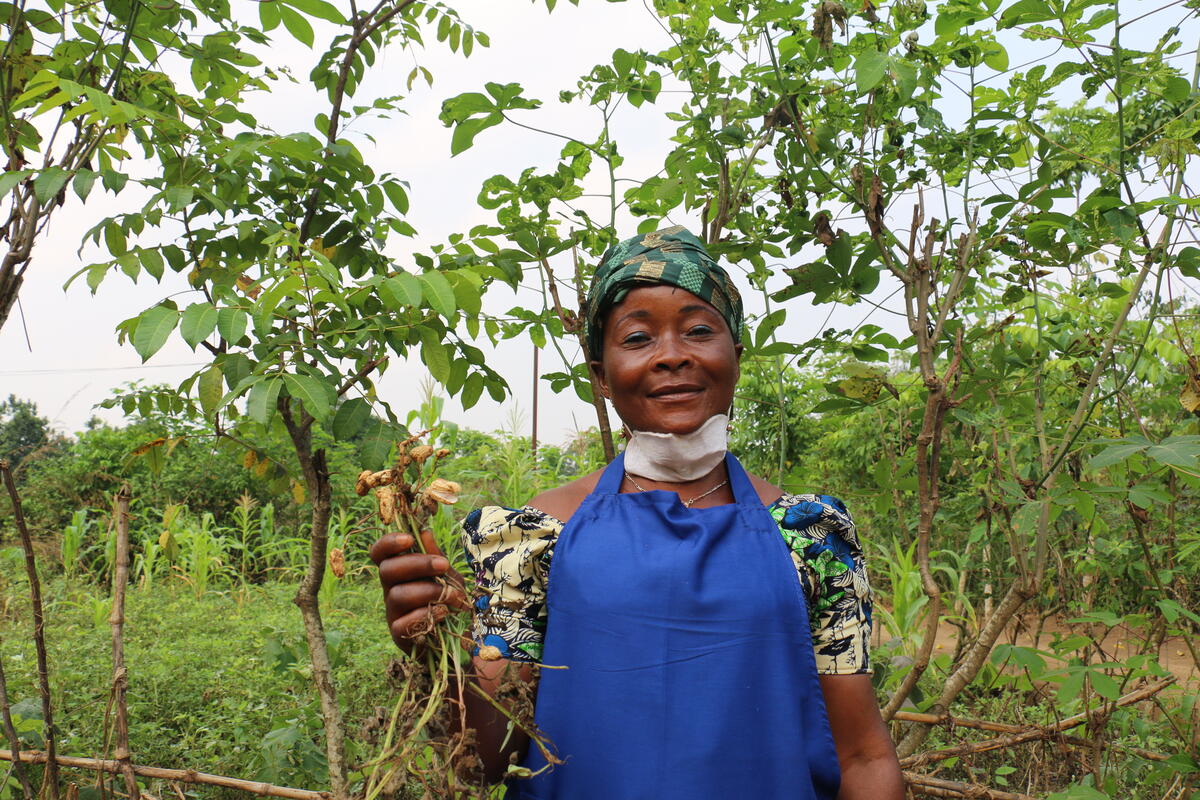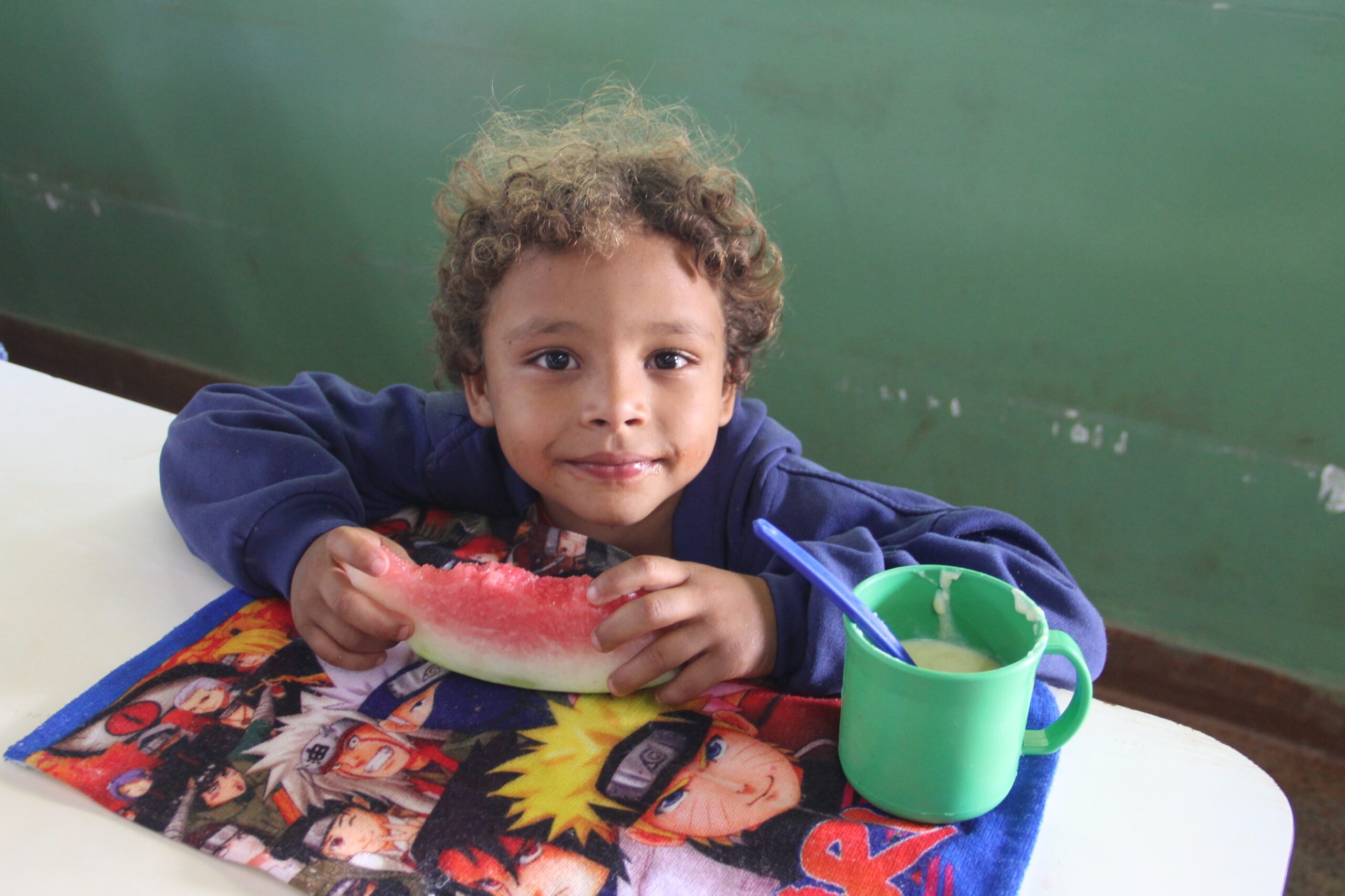
The United Nations World Food Programme (WFP) Centre of Excellence against Hunger in Brazil, the Government of the Republic of Congo (RoC) and the Government of Brazil have launched a new South-South cooperation project with the aim of contributing to the food security and nutritional status of smallholder farmers, particularly women, and school children in the RoC. The project, called “Enhancing Family Farmers’ Access to Local Markets in the Republic of Congo through South-South Cooperation” and funded by IBSA will enable RoC’s Ministries to tap into the wealth of expertise and innovations available in Brazil , with a focus on pro-family farming and school feeding programmes.
The project will focus its actions on institutional capacity strengthening for policy makers at central and local levels, through a “training of trainers” approach and on-the-job coaching, with the participation of the Ministry of Agriculture, Livestock and Fisheries and of the Ministry of Pre-school, Primary, Secondary Education and Literacy in the RoC. The project will also focus on capacity strengthening at the grassroot level for family farmer associations/cooperatives in targeted districts in the Bouenza, Plateaux and Pool departments, through delivery of equipment, tailored training, and in-field demonstrations by the Ministry of Agriculture, Livestock and Fisheries staff trained by their peers from IBSA countries.
“South-South Trilateral Cooperation is a relevant tool to strengthen local capacity especially in relation to social safety nets and school feeding and WFP has wide experience in facilitating cost-effective and adaptable, results oriented and demand driven South-South Trilateral Cooperation initiatives”, said Daniel Balaban, Director of the WFP Centre of Excellence against Hunger in Brazil. “WFP also focus on mutual benefits and learning as key pillars for strengthening national systems and programmes in countries from the Global South, generating benefits for the most vulnerable people and risk and suffering from hunger and malnutrition”, he added.
This project will also help enhance the institutional capacity of the Ministry of Pre-school, Primary, Secondary Education and Literacy at central and local levels to adequately implement its National School Feeding Policy with a view to transition from a WFP-led to a fully Government-led national Programme with a strong component of locally purchased food. The School Feeding Programme in RoC currently targets 388 schools supported with McGovern-Dole funds and 144 schools assisted in cash-based transfer modalities (Cantines Ya Buala and Mbala Pinda), providing nutritious meals to an estimated 173,000 students in 10 out of the country’s 12 departments.
In the RoC, food insecurity affects 33,3% percent of households, with high prevalence in rural areas, while 38% of the population is undernourished, and 19,6% of children under the age of five suffer from chronic malnutrition. Over the years, the country has implemented several initiatives to eradicate poverty notably through the implementation of the country strategic plan (the latest covering the 2019-2024 period) and development strategies and policies at the sectoral level. The main gaps in institutional capacity, at policy and technical levels, to support smallholder farmers include difficulty in accessing credit and natural resources, insufficient technical assistance services, poor rural infrastructure, weak agricultural modernisation, inadequate food storage and processing practices/equipment, and limited capacity of farmer associations/cooperatives.
Sharing the Brazilian experience through South-South Cooperation

Institutional purchase from family farmers is a key strategy for the Brazil’s Government to strengthen family farming. Programmes such as the Food Procurement Programme (PAA), the National Programme for Strengthening Smallholder Agriculture (PRONAF), and institutions such as The Brazilian Agricultural Research Corporation (EMBRAPA) and the state technical assistance and rural extension companies (EMATER) allowed farmers to get greater access to research and technology to increase production, generating greater income and better conditions for the sector.
The Brazilian National School Feeding Programme (PNAE) is among the largest school feeding programmes in the world due to its geographic coverage and number of beneficiaries and is regarded as a role model for including family farming products on school menus.
Cecilia Malaguti, head of the Trilateral South-South Cooperation with International Organization of the Brazilian Cooperation Agency, said: “South-South Cooperation has the goal of developing capacities based on sharing good practices and successful experiences with partner countries from the South. This project will be an opportunity for the Brazilian government to share one of its most recognized policies, the National School Feeding Programme, highlighting its link with smallholder farming, its multisectoral approach, its possibility to play a key role in fighting hunger, promoting food and nutrition security and sovereignty, collaborating, in this way, to developing smallholder farming in the Republic of the Congo.”
The project, which will last two years, includes market assessments, workshops, field visits, the production of documents and manuals, and the distribution of agricultural equipment, among other activities.




